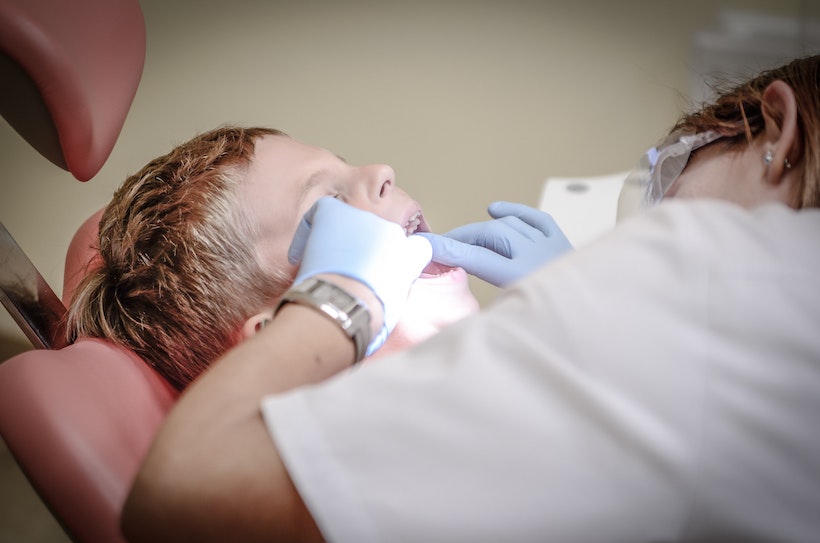Tooth Crowns – Everything You Need to Know

Dental crowns provide protection and restoration to damaged teeth. Most crowned teeth don’t need special attention beyond maintaining regular oral hygiene routines.
In order to prepare your tooth for a crown, your dentist will first trim and shape the area around it before fitting a temporary cap to protect the tooth until its ready for its crown.
Porcelain
Porcelain crowns are the go-to solution for broken teeth or fillings, being strong, durable, and looking natural. Furthermore, these porcelain tooth crowns Barrie, can also improve the aesthetics of your smile by covering any discolored or misshaped tooth structures that might make an otherwise stunning smile less so.
All porcelain crowns are fabricated using high-grade cosmetic materials designed to mimic the appearance of natural teeth, such as E Max monolithic ceramic – one of the newest and strongest materials -, zirconium, and conventional porcelain fused to metal crowns (PFMs).
Porcelain crowns are constructed in two layers, consisting of a strong and durable supporting layer known as the coping and an artist-applied lifelike top layer called a dental artist. An experienced dentist can place porcelain crowns with minimal dental preparation required – meaning most of your original tooth remains beneath its cap. In order to ensure long-term protection of dental crowns, regular appointments and at-home care must be undertaken, including brushing daily and flossing; refraining from chewing ice or biting nails; wearing mouthguards during sports or nighttime bruxism.
Metal
Metal crowns are typically constructed of alloys incorporating gold, platinum and copper; nickel cobalt and chromium may also be included as base metals. Metal crowns differ from porcelain in that they’re strong and durable compared to its porous surface; however they may become susceptible to corrosion over time and cause allergic reactions for some individuals; they’re most commonly used to restore molars.
Stainless Steel Crowns Used primarily as temporary crowns for primary teeth or more permanent restoration for an injured molar, stainless steel crowns do not present well cosmetically and cannot provide custom fitting or durability comparable to other crown types.
Resin
Resin crowns are tooth-coloured filling materials used to cover damaged teeth. To prepare for one, first the area around the affected tooth needs to be numbed; next it needs to be filed down along its chewing surface and sides until space can be made for the crown; finally a temporary crown may be applied while permanent one is manufactured in a laboratory.
Dental crowns in Barrie may be necessary when traditional fillings cannot restore damage caused by damage or decay to teeth, gaps between teeth or malocclusion (bad bite) and/or TMJ disorder are present. They can also help address gaps between them to address potential malocclusion (bad bite) issues as well as TMJ disorder.
Resin crowns are relatively affordable and provide an appealing cosmetic appearance, yet tend to wear down quickly and less durablely than other crown types. Furthermore, resin crowns require significant tooth structure removal that may lead to gingival inflammation; furthermore they don’t withstand biting forces as effectively and are more prone to fracture than their alternatives.
Ceramic
Ceramic crowns (commonly referred to as caps) are porcelain restorations designed to blend seamlessly with the rest of your tooth’s color, making them less noticeable. Ceramic crowns are the strongest, most natural-looking type of dental crown. Using Cad-Cam systems either in-lab or by your dentist at appointment time, they’re made of one single block of porcelain.
Traditional metal crowns are used to restore the size, shape and strength of teeth. They may also be used as repairs on teeth that have become severely damaged or decayed and cannot be restored with bonding or fillings alone.
Before fabricating a crown, your tooth must first be numbed and prepared by extracting any decay and reshaping it. Once created on a CAD/CAM machine at your dentist’s office, it will be permanently cemented onto the prepared tooth using dental cement. As with other types of crowns, this procedure typically lasts two to four hours as fabrication takes time as well as fitting/adjusting of crown to tooth will take some time and adjustments may need to be made as part of this procedure.


